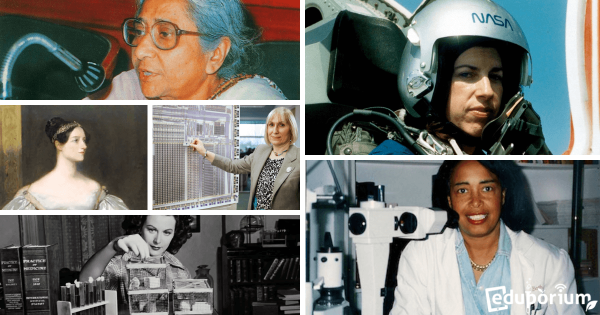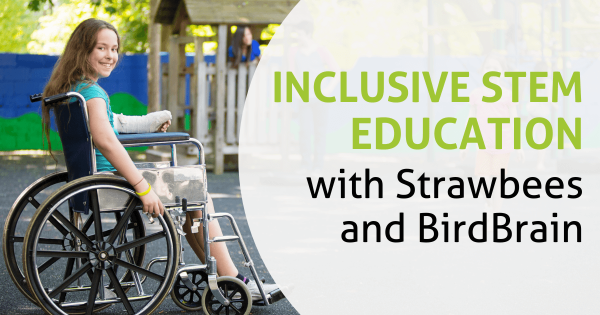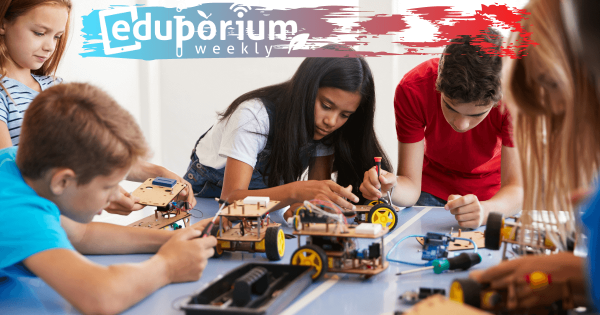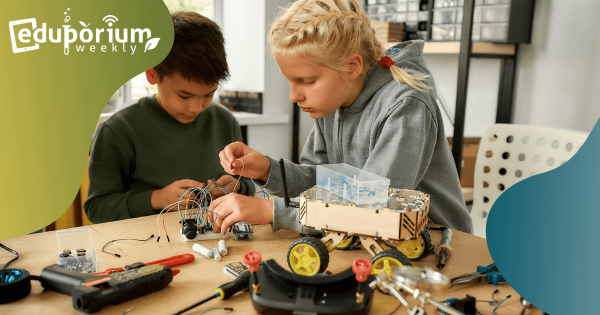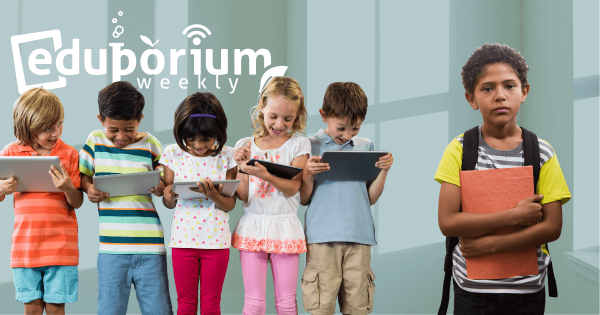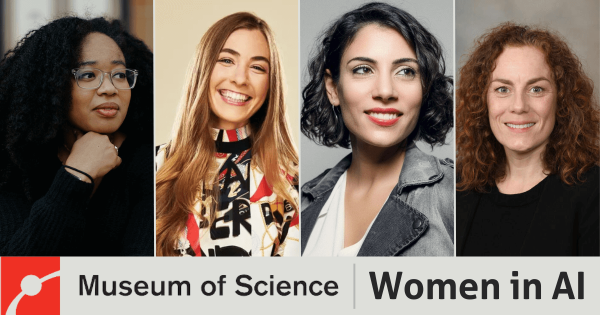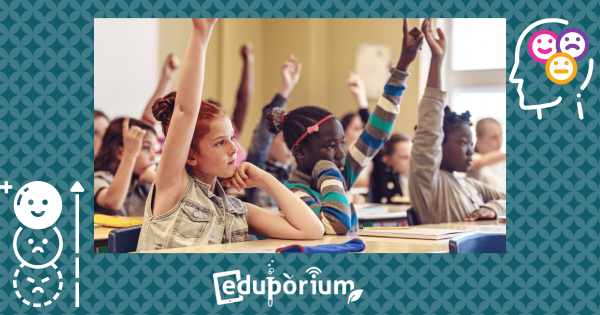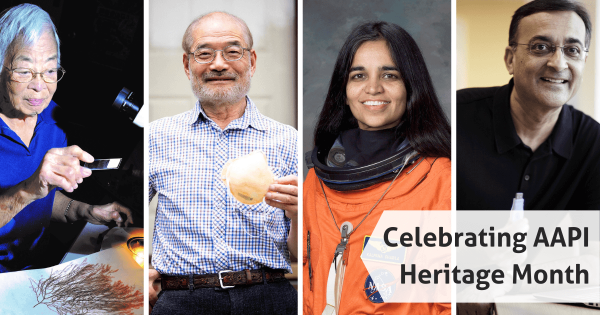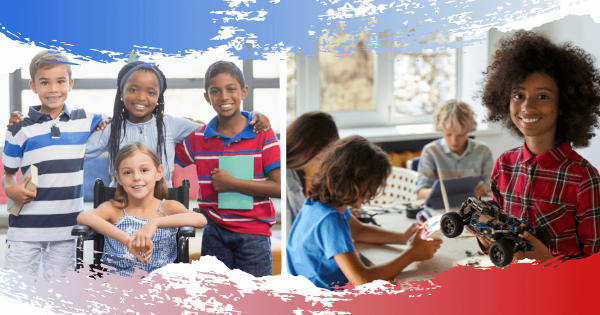It’s Women’s History Month, and to celebrate, we’ll be highlighting some of the most significant historical accomplishments female STEM leaders have made. Recognizing the contributions of these women is an inspiration both to educators and future women in STEM. Read on for details on how these women gave us Wi-Fi, programming, chemotherapy, OLEDs, and more.
Inclusion
-
Inclusive STEM Education With Strawbees And BirdBrain
What obstacles might students face in STEM education? For students with physical and mental disabilities, not every school is an inclusive place. But Strawbees and BirdBrain joined forces to remedy this. In this lesson, kids use Strawbees tools and Hummingbird Bit to design accessible playground equipment—making inclusivity a priority while practicing STEM skills. -
Eduporium Weekly | Scaling Your Afterschool STEM Programs
Education in 21st century schools, especially when educational technology plays a role, is very much aligned with progress, growth, and the scaling of programs. Now that the summer is here, it seems appropriate to talk about some of the programs that students take part in outside of their structured school activities, including various afterschool programs and fun clubs. -
Eduporium Weekly | Technology, Equity, And Inclusion
Equity in modern learning involves much more than connectivity—although that’s a big piece of this puzzle. Disparities in reliable Internet access along with other inequities (as we constantly felt amid the pandemic) can expose inconsistencies in learning quality. On the other hand, firming up students’ digital safety (while serving their needs) also entails equity considerations. -
Eduporium Weekly | The Digital Divide And Learning
It has now been slightly over three years since the pandemic first shook up the education world. Beyond initial struggles with administering emergency instruction and too many parents worrying about kids losing academic and social development, another key factor emerged. We knew there was a big digital divide among our students, but didn’t realize how bad it really was. -
Panel: Women In STEM On The Ethics Of AI
Last week, at the Boston Museum of Science, their Women in Science and Engineering (WISE) initiative hosted a panel on Women in AI. The panelists discussed the need for added diversity in AI and the significance of ethical issues surrounding how people use artificial intelligences. They also added their insights on how to use AI tools effectively and safely in -
SEL And Equity: Truly Teaching Today's Students
With SEL in the classroom, ensuring that every student feels heard, valued, respected, and advocated for are each among the biggest drivers as we all aim to collectively increase equity in education. When teachers meet these conditions, kids often feel more comfortable in their learning environments, which can spark added achievement when their emotional state is strong. -
Celebrating AAPI Scientists And Innovators
Representation in STEAM fields remains invaluable, especially considering that lack of visibility among AAPI individuals. For this AAPI Heritage Month, we’re excited to recognize major accomplishments of these STEM leaders, who have made great strides in areas like computer science, public health, treating illness, or tracking storms all while continuing to improve our lives. -
Digital Inclusion: Why Is It So Important In Education?
With information and communications technology (ICT) generally regarded as one of the top sectors across the current workforce, the need for digital literacy proficiencies are now much more urgent across education and that starts with improving digital inclusion and equity in every classroom. We all can help slim the digital divide so digital inclusion is a right not a privilege. -
Striving For Equality And Starting With Equity In Education
Whether it is recovering from remote learning setbacks, addressing gaps in technology access, or focusing on SEL recovery, things got really tough on many students. Plus, since not all students in all geographical areas and of all socioeconomic backgrounds have access to all the same opportunities, it’s easy to understand that certain achievement gaps will persist.




